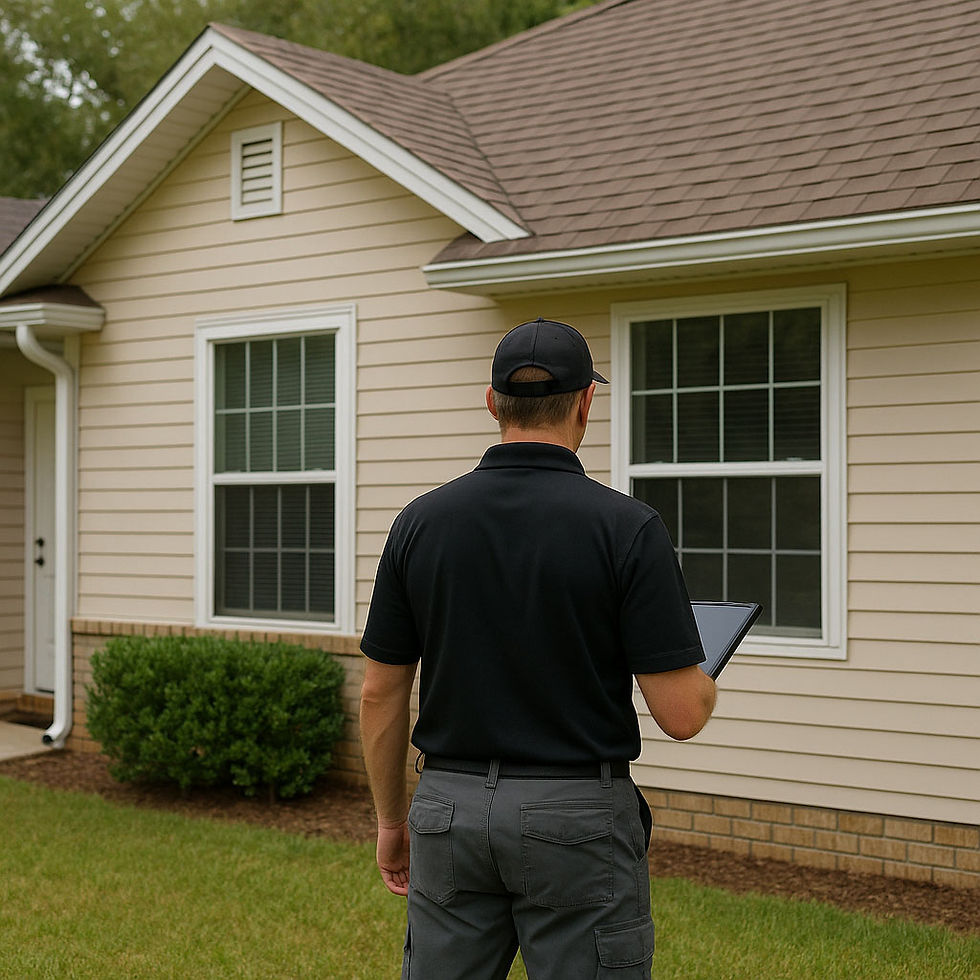Reducing Home Energy Costs without Sacraficing comfort.
- Mark Rogers

- Dec 28, 2022
- 3 min read
Updated: Jan 18, 2024
3 Easy Ways to Save Money by Reducing Home Energy Costs in Your Home

Most people don’t know how easy it is to make their homes run on less energy, we want to change that.
Drastic reductions in heating, cooling and electricity costs can be accomplished through very simple changes, most of which homeowners can do themselves. Of course, for homeowners who want to take advantage of the most up-to-date knowledge and systems in home energy efficiency, InterNACHI energy auditors can perform in-depth testing to find the best energy solutions for your particular home.
Why make your home more energy efficient? Here are a few good reasons:
Federal, state, utility and local jurisdictions' financial incentives, such as tax breaks, are very advantageous for homeowners in most parts of the U.S.
It saves money. It costs less to power a home that has been converted to be more energy-efficient.
It increases the comfort level indoors.
It reduces our impact on climate change. Many scientists now believe that excessive energy consumption contributes significantly to global warming.
It reduces pollution. Conventional power production introduces pollutants that find their way into the air, soil and water supplies.
1. Find better ways to heat and cool your house.
As much as half of the energy used in homes goes toward heating and cooling. The following are a few ways that energy bills can be reduced through adjustments to the heating and cooling systems:
Install a ceiling fan. Ceiling fans can be used in place of air conditioners, which require a large amount of energy.
Periodically replace air filters in air conditioners and heaters.
Set thermostats to an appropriate temperature. Specifically, they should be turned down at night and when no one is home. In most homes, about 2% of the heating bill will be saved for each degree that the thermostat is lowered for at least eight hours each day. Turning down the thermostat from 75° F to 70° F, for example, saves about 10% on heating costs.
Install a programmable thermostat. A programmable thermostat saves money by allowing heating and cooling appliances to be automatically turned down during times when no one is home and at night. Programmable thermostats contain no mercury and, in some climate zones, can save up to $150 per year in energy costs.
Install a wood stove or a pellet stove. These are more efficient sources of heat than furnaces.
At night, curtains drawn over windows will better insulate the room.

Image of a high-efficiency thermostat at the InterNACHI® House of Horrors® in Colorado.
2. Install a tankless water heater.
Demand-type water heaters (tankless or instantaneous) provide hot water only as it is needed. They don't produce the standby energy losses associated with traditional storage water heaters, which will save on energy costs. Tankless water heaters heat water directly without the use of a storage tank. When a hot water tap is turned on, cold water travels through a pipe into the unit. A gas burner or an electric element heats the water. As a result, demand water heaters deliver a constant supply of hot water. You don't need to wait for a storage tank to fill up with enough hot water.
3. Replace incandescent lights.
The average household dedicates 11% of its energy budget to lighting. Traditional incandescent lights convert approximately only 10% of the energy they consume into light, while the rest becomes heat. The use of new lighting technologies, such as light-emitting diodes (LEDs) and compact fluorescent lamps (CFLs), can reduce the energy use required by lighting by 50% to 75%. Advances in lighting controls offer further energy savings by reducing the amount of time that lights are on but not being used. Here are some facts about CFLs and LEDs:
CFLs use 75% less energy and last about 10 times longer than traditional incandescent bulbs.
LEDs last even longer than CFLs and consume less energy.
LEDs have no moving parts and, unlike CFLs, they contain no mercury.
Stay tuned for more easy-to-implement ways to Reducing Home Energy Costs.
This article was shared with permission by natchi.org





Comments